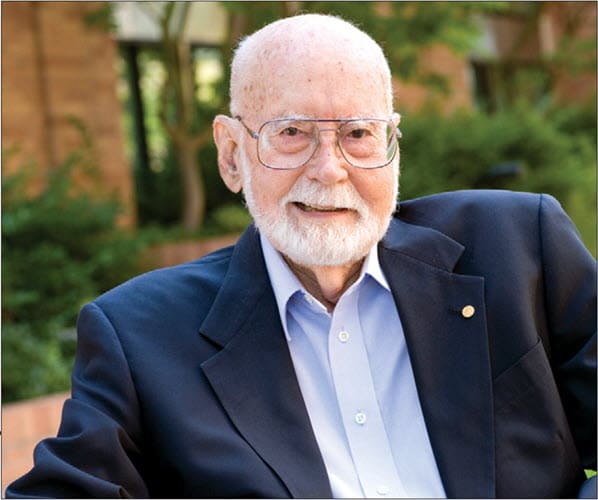Trailblazer in Medicine: The Legacy of E. Donnall Thomas, Father of Bone Marrow Transplantation

E. Donnall Thomas (15 March 1920 – 20 October 2012) was an American physician and medical researcher. He was awarded the Nobel Prize in Physiology or Medicine in 1990 with Joseph E. Murray.
Life and Career
Donnall Thomas was born on 15 March 1920, in Mart, Texas, United States. He received his undergraduate degree from the University of Texas in 1941, majoring in chemistry and zoology. He then went on to study medicine at Harvard Medical School, where he earned his medical degree in 1946.
After completing his medical training, Thomas served as a medical officer in the Army Medical Corps for two years. He then returned to Harvard to complete a residency in internal medicine. In 1955, Thomas joined the research staff at the National Institutes of Health (NIH), where he worked on developing new treatments for leukemia and other blood-related disorders. He also conducted research on the use of radiation therapy and chemotherapy for cancer treatment.
In 1963, Thomas moved to Seattle, Washington, to join the Fred Hutchinson Cancer Research Center, where he continued his work on bone marrow transplantation. At the center, he established the first bone marrow transplantation program in the United States and conducted pioneering research on the use of bone marrow transplantation for the treatment of leukemia and other blood-related diseases.
Thomas and his colleagues faced many challenges in their early work on bone marrow transplantation, including rejection of the transplanted cells by the recipient’s immune system and the risk of infection. However, through careful experimentation and clinical trials, they were able to develop new techniques for suppressing the immune system and preventing infection, which greatly improved the success rate of the procedure. Donnall Thomas died on 20 October 2012, in Seattle, Washington, United States.
Award and Legacy
He was awarded the Nobel Prize in Physiology or Medicine in 1990 with Joseph E. Murray for his pioneering work in bone marrow transplantation, which revolutionized the treatment of leukemia and other blood-related diseases. He received other numerous honors and awards for his contributions to medical research, including the National Medal of Science.
Observer Voice is the one stop site for National, International news, Sports, Editor’s Choice, Art/culture contents, Quotes and much more. We also cover historical contents. Historical contents includes World History, Indian History, and what happened today. The website also covers Entertainment across the India and World.

